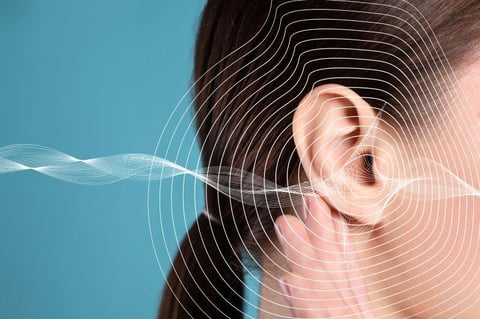United States – Most people have temporarily experienced tinnitus, a continuous or intermittent ringing in the ears, during their lifetime; for others, it is a terrible condition, which affects up to 10% of the population.
Now, scientists at the Massachusetts Ear and Eye Infirmary believe they may have discovered a key cause of the condition: The twelfth development being a degeneration of nerve much of specific importance in hearing, as reported by HealthDay.
Key Discovery
“We won’t be able to cure tinnitus until we fully understand the mechanisms underlying its genesis. This work is a first step toward our ultimate goal of silencing tinnitus,” said study senior author Stéphane Maison, a principal investigator at Mass Eye and Ear and clinical director of the Mass Eye and Ear Tinnitus Clinic.
The sound of tinnitus in the form of buzzing, ringing, and even roaring makes the quality of life lower.
Impact on Quality of Life
“In addition to experiencing a constant ringing or other noise in the ear, tinnitus symptoms are disabling in many patients in terms of sleep deprivation, social isolation, anxiety, and depression, affecting their jobs and greatly decreasing their quality of life,” Maison said in the news release.
There are many theories on the cause of tinnitus that have been made available in the health field. A study done at Mass Eye and Ear found that people can develop the condition even if they pass a simple hearing test that is usually given to patients.
Cochlear Synaptopathy and Tinnitus
It took them to a state referred to as cochlear synaptopathy — a form of hearing loss without involving the hair cells or the actual structures within the cochlea, but rather the loss of the nerve connections to those hair cells.
Maison’s group explored patients with objective audiometric test results within the normal range but complaining of tinnitus.
They established the absence of auditory nerve function in these patients, in addition to finding evidence of increased activity in the patient’s brain stem.
Hope for Future Treatment
“Our work reconciles the idea that tinnitus may be triggered by a loss of auditory nerve, including in people with normal hearing,” Maison said, as reported by HealthDay.
His group will now investigate if tinnitus may be eliminated by restoring auditory nerve function.
“The idea that one day, researchers might be able to bring back the missing sound to the brain and, perhaps, reduce its hyperactivity in conjunction with retraining, definitely brings the hope of a cure closer to reality,” Maison explained.







Be First to Comment